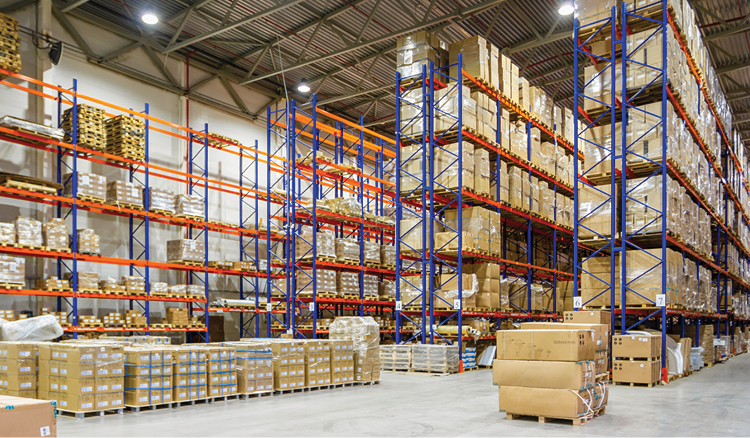Temp-to-Perm Hiring: Pros, Cons, and Alternatives
So you need workers now, but you aren’t sure if you’re ready to hire anyone yet. Maybe the need for workers won’t last, or maybe you would rather test the waters with any newcomers before extending an offer of full-time employment. This article isn’t about our solution, which is different from temp-to-perm. At Veryable, we connect businesses to on-demand workers so they can meet their labor needs by matching capacity to demand in real time. We just want to share what we’ve seen in other businesses who choose to use temp-to-perm as a strategy for finding employees.
In this article, you’ll learn the pros and cons of temp hiring, how to evaluate if it will work for you, and what your alternatives are.
What is temp-to-perm hiring?
Temp-to-perm hiring is when you find temporary workers, give them work to do for a period of time, and eventually offer full-time employment to the workers you like. There is typically no guarantee made to any of the temporary workers (also known as temps or temp workers) that they will be hired full-time. Often businesses or temp agencies tell workers up front in the job posting that there is an opportunity for them to be hired, because this is an attractive opportunity to some workers.
Pros and cons of temp-to-perm hiring
Pros of temp-to-perm hiring
- Easily find workers for short-term needs
- Vet workers before extending a full-time offer
- Outsource recruiting to a temp staffing agency
The pros of temp-to-perm hiring are mostly related to meeting your labor needs now and evaluating candidates for your long-term needs. You can even take a mostly hands-off approach to this if you choose, by using a temp staffing agency to find workers and act as an intermediary.
Cons of temp-to-perm hiring
- Constant training required until roles are filled
- Lack of control over relationships if using a temp agency
- Quality of work from temp workers can fall short
The cons of temp-to-perm hiring are that you will have to constantly train workers, with no guarantee that you’ll find a good one. Due to the fact that temp staff can quickly be placed somewhere else, there isn’t as much incentive for them to perform as there would be for an independent worker or an employee whose pay depends on how well they work. You also lose control over much of the recruiting process when you outsource the work to a temp staffing agency. You might end up paying conversion fees for the workers you do want to hire, making it more expensive to find employees using a temp-to-hire approach.
How to know if temp-to-hire is right for you
If you have no need for specialized workers and are okay with having quite a few misses before you find someone you want to hire, then temp-to-perm can work for you. You will be getting work done even if you don’t find someone to hire, and if the bar for quality is low, then you won’t have to worry too much about the work from these workers.
If you are concerned with quality, want control over the relationship with your temporary workers, or are looking for specialized workers, then temp-to-perm might not be the best solution for you. The nature of temp work means many workers won’t feel the need to give their best at every opportunity, because the temp agency can just find somewhere else for them to work. You also won’t have much control over the relationship with the temps if you go through an agency, meaning you might not always get to evaluate the temps as well as you would like before you come to a decision about full-time employment. If you are looking for specialized workers, it’s best to steer clear of temp staffing altogether.
Alternatives to temp-to-perm hiring
If you’re looking for immediate help and want to establish a relationship with workers before you hire them, there are other ways to do so.
Part-time work shifts
If you want to test out workers on your own, then you could establish part-time shifts that would allow you to train employees and give them some of the flexibility that appeals to temp workers. This way you have a relationship with the worker that you control, but you aren’t committing to full-time employment just yet. If you identify workers on the part-time shifts who are doing a great job, then you can see if they are interested in moving to full-time.
On-demand staffing
There are many modern solutions for finding workers to fill your immediate need. On-demand staffing companies can find you workers quickly for short-term work, and there are options available for finding workers employed by these companies or workers operating as independent contractors. Some of these companies require hiring fees, while others do not. Read our roundup of the best on-demand staffing companies for an in-depth comparison.
On-demand labor for manufacturing and logistics
On-demand labor is specifically for manufacturing and logistics companies and enables your business to find skilled workers quickly. This approach to your workforce enables you to match capacity to demand in real time by building a labor pool of on-demand workers. You can bring in workers as soon as the next day, based on your current demand. Then you can add the workers you like to a favorites list, also known as your labor pool. You can invite workers from your labor pool to give them priority access to the work opportunities you post. This lets you build a bench of workers available on demand, so you can instantly flex your headcount up or down as needed.
To learn more about how this approach stacks up, read our in-depth comparison of on-demand labor and temp staffing.
Previous Posts
From Activity to Outcomes: A New Standard for Publicly Funded Manufacturing and Workforce Programs
The Future of Manufacturing and Logistics
Create a free business profile today to explore our platform.






